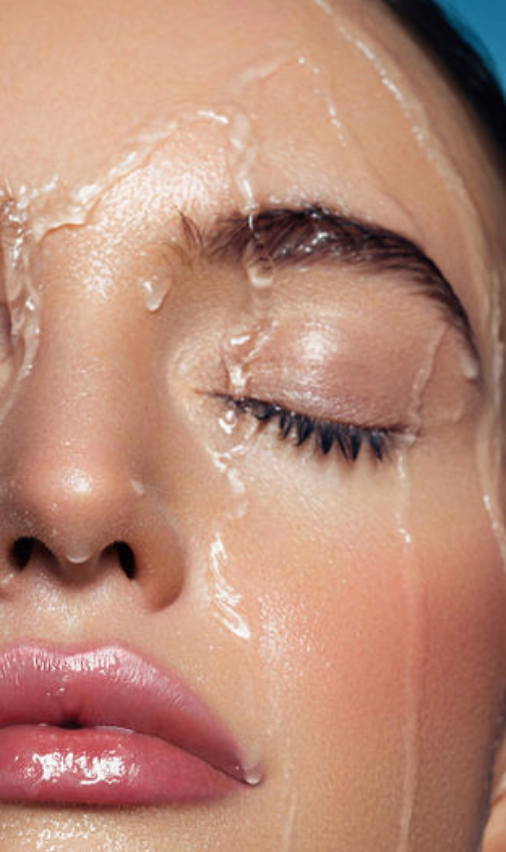When it comes to skincare, the ritual of cleansing our face is both fundamental and sacred. It's the first step in our routine, setting the tone for the products and treatments that follow. Yet, amidst the plethora of options – gel, foam, oil, cream cleansers – an important question often goes unasked: Is your face cleanser aiding your skin, or is it subtly contributing to premature aging? Understanding the impact of your cleanser choice is crucial, as it can either be a cornerstone of maintaining youthful skin or an unsuspecting culprit in its degradation.
Can We Slow Skin Aging?
Skin aging is an inevitable biological process characterized by features like fine lines, wrinkles, loss of elasticity, and changes in texture and pigmentation. Intrinsic aging is a natural part of getting older, driven by genetics and time. However, extrinsic factors like sun exposure, pollution, lifestyle choices, and skincare products significantly accelerate this process. External aggressors can cause oxidative stress, leading to collagen breakdown and skin damage. This is where skincare products, including cleansers, play a pivotal role. They can either protect and nurture the skin or contribute to its accelerated aging, depending on their formulation and how they interact with the skin.
The Importance of Facial Cleansers in Skincare
Facial cleansers are the most important product in your skin care regimen. Cleansers are designed to remove dirt, oil, makeup, and other pollutants from the skin's surface, helping to unclog pores and prevent skin conditions like acne. Depending on their formulation, cleansers can range from deeply purifying to gently hydrating. Foaming cleansers are popular for their deep cleaning properties while non-foaming, cream, or oil-based cleansers offer a gentler touch, often preferred for dry or sensitive skin types. The choice of cleanser should align with your skin type and concerns; however, it's crucial to understand that even the most suitable cleanser can have adverse effects if it contains harsh ingredients or disrupts the skin's natural balance.
PH Balance and Skin Health
Why is the pH of your skin so important? The skin's natural pH is slightly acidic, around 5.5. This acidity helps form a barrier, the acid mantle, protecting the skin from bacteria, pollution, and other potential irritants. If your skin becomes too alkaline, it may become dry and more sensitive which can lead to more aging with fine lines and wrinkles. If your skin becomes too acidic, your skin may revolt and may feel irritated and prone to breakouts. There is a fine line - no pun intended - between the acidity of your skin and aging.
Many cleansers, especially alkaline ones, can disrupt this delicate balance, so t's crucial to choose a cleanser that respects the skin's natural pH, preserving its barrier and overall health. Here are some indicators:
Signs Your Skin's pH Might Be Too Acidic:
- Cleansing leaves your skin feeling oily and not completely clean.
- There's often no need to use moisturizer, or you rarely apply it.
- Your skin tends to react negatively or sensitively to new skincare products.
- Frequent redness and irritation are noticeable on your skin.
- There's a consistent oily sheen on your skin.
Indicators Your Skin's pH Might Be Too Alkaline:
- Your skin has a tight, dry sensation post-cleansing.
- You find yourself needing to moisturize more than once throughout the day.
- Occasionally, you notice dry, coarse patches on your skin.
- Upon waking up, your skin looks dull and displays more fine lines.
- Skin products sometimes cause stinging or irritation.
- Your skin seldom has a plump or dewy appearance.

Beware: Ingredients in Cleansers That Might Age Skin
Not all cleansers are created equal. Some contain harsh ingredients that can be detrimental to the skin's health. For instance, sulfates (like sodium lauryl sulfate and sodium laureth sulfate), commonly found in foaming cleansers, are effective at dissolving oil but can strip the skin of its natural oils, leading to dryness and irritation. Similarly, high concentrations of alcohols in cleansers can cause dehydration and weaken the skin barrier, making the skin more susceptible to environmental damage.
Parabens, used as preservatives, can disrupt hormone function, and some studies suggest a link between parabens and skin aging. Synthetic fragrances and colors are also potential irritants, leading to skin sensitivities and allergic reactions. Over time, repeated exposure to these harsh chemicals can cause chronic inflammation, a key factor in skin aging.
However, it's not just about what's in your cleanser. It's also about what's not. Many cleansers lack beneficial ingredients like antioxidants, which protect against environmental damage, or hydrating agents that help maintain skin moisture. The absence of these nurturing ingredients can leave the skin vulnerable to the aging process.
Overview of Harmful vs. Beneficial Components
Ingredients That May Age You More:
- Sodium Lauryl Sulfate (SLS)/Sodium Laureth Sulfate (SLES): Often used for their foaming properties, but can strip the skin of natural oils, leading to dryness and irritation.
- Alcohols (especially denatured alcohol): Can be overly drying, weakening the skin's natural barrier.
- Parabens (Methylparaben, Propylparaben, etc.): Used as preservatives; potential hormone disruptors and may contribute to skin aging.
- Synthetic Fragrances: Can cause irritation and allergic reactions, potentially leading to chronic inflammation.
- Synthetic Dyes: May cause skin sensitivity and irritation.
- Phthalates: Often found in fragranced products; linked to hormone disruption.
- Formaldehyde-Releasing Preservatives (DMDM hydantoin, urea): Can be irritating to the skin and eyes.
- Propylene Glycol: Can be irritating and potentially lead to dermatitis.
- Mineral Oil: Can clog pores and interfere with the skin’s ability to release toxins.
- Triclosan: An antibacterial agent that can disrupt the skin's microbiome balance.
Ingredients To Help Defy Aging:
- Hyaluronic Acid: A powerful humectant that helps keep the skin hydrated and plump.
- Ceramides: Lipids that help reinforce the skin’s barrier and maintain moisture.
- Glycerin: A gentle humectant that attracts water to the skin, promoting hydration.
- Alpha Hydroxy Acids (AHAs like glycolic acid, lactic acid): Help in gentle exfoliation and skin renewal.
- Beta Hydroxy Acids (BHAs like salicylic acid): Aid in exfoliation, particularly helpful for acne-prone skin.
- Vitamin E (Tocopherol): An antioxidant that helps protect the skin from environmental damage.
- Vitamin C (Ascorbic Acid): Known for its brightening properties and antioxidant benefits.
- Green Tea Extract: Contains antioxidants that help protect the skin from free radical damage.
- Aloe Vera: Known for its soothing and hydrating properties.
- Niacinamide (Vitamin B3): Helps improve skin tone, texture, and hydration, and also has anti-inflammatory properties.
Tips on Face Cleansing
The duration and technique of cleansing your face are pivotal in ensuring effective skincare. Generally, you should cleanse your face for about 30 to 60 seconds. This time frame allows the cleanser to break down and remove dirt, oil, and makeup without stripping the skin of its natural oils. For the best cleansing experience, start by washing your hands to avoid transferring bacteria to your face. Use lukewarm water as extreme temperatures can irritate the skin. Apply the cleanser using gentle, circular motions with your fingertips, covering all areas of the face including the often-neglected hairline, jawline, and beneath the chin. Pay special attention to areas where dirt and oil tend to accumulate.
After cleansing, rinse thoroughly to remove all traces of the cleanser, as residue can lead to irritation or breakouts. Pat your face dry with a clean towel rather than rubbing, to prevent irritation. Lastly, remember to follow up with a moisturizer to keep your skin hydrated, as even the gentlest cleansers can remove some natural skin oils. This routine ensures a thorough cleanse while maintaining the health and integrity of your skin.
Selecting a Cleanser That Combats Aging
The importance of selecting an appropriate cleanser cannot be overstated in the quest for healthy, radiant skin. Focus on finding cleansers enriched with gentle and moisturizing components such as ceramides, glycerin, or hyaluronic acid. These key ingredients assist in hydrating the skin and fortifying its protective barrier. Individuals with sensitive or acne-inclined skin should prioritize soothing elements like green tea or aloe vera. It is crucial to avoid harsh ingredients like strong surfactants, alcohol, and synthetic fragrances, especially for those with dry or sensitive skin types. Aim for cleansers whose pH levels are similar to your skin's natural pH, which can usually be determined from the product's packaging or directly from the manufacturer. Observe how your skin feels following a cleanse; a clean yet comfortable feeling without tightness or excessive dryness is what you should aim for. Signs of irritation, redness, or a burning sensation suggest that your cleanser might be too strong. Remember, a high-priced cleanser does not guarantee superior quality. The objective is to find a cleanser that effectively cleanses without causing adverse effects.









Leave a comment
This site is protected by hCaptcha and the hCaptcha Privacy Policy and Terms of Service apply.